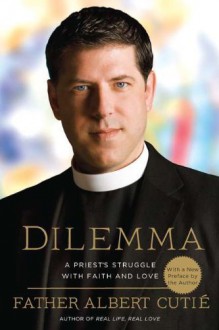
Bloody Mary... First Queen of England... Daughter of Henry VIII... Disinherited... Unloved and Alone.. These are just a few of the thoughts that come to mind when one thinks of Mary Tudor..
Mary Tudor has long been vilified in the eyes of history. Condemned for her harsh treatment of perceived heretics in her kingdom, the first queen of England was hiding the longing that was inside of her.
As a child, she was the apple of her father's eye, loved and cherished. Then came the nasty business of the "other woman" and the loss of Mary's mother. With queen Catherine removed from court, and the process of a divorce moving forward, Mary became lost in limbo. Losing her status as princess, and forced to serve in the household of her new half-sister, she throws herself deeper into her faith. All she wanted was her fathers affection, but that was only given sparingly. As she matured into adulthood, she began to hope for love and a family of her own. Her hopes her dashed as time keeps moving forward and no move is made to procure a marriage for her. When her father finally dies, and her brother comes to the throne, she does her best to be there for him, but the changing climate in religion forces her to move away from court.
Throughout her brothers reign, the warnings about her faith are given, but she continues regardless of what they say. But when her brother finally puts his food down, she realizes that he is growing up, and will soon be his own counselor. But the foundation of her faith is the only thing that keeps her going. Her house continues to practice Catholicism, regardless of the tenor from the courts. But after her brothers death and the young Lady Jane is proclaimed queen, Mary moves forward with her own claim for the throne. With the country behind her, she is swept into London, and proclaimed queen. Her countrymen have become her children, and she pours her love into her kingdom. With marriage coming into the picture, she can hope for happiness, but again she is disappointed. Philip fulfills what he must for the marriage, but no more. Mary pours herself into her marriage, only to have her heart broken continually. With the support of her cousin, the Cardinal Pole, she pushes forward with her reforms and her punishments, but slowly she is losing the love of her land. With no heir, she is forced to name her sister, who has not converted to the Catholic faith.
With the death of Mary comes the death of the hopes of returning England to the fold of the church of Rome, and ushers in a new era.
The story of Mary is one that is both heartbreaking and horrifying. All she wanted was love, the love of a father figure who was never there for her. The upheavals of her life must have seriously marked the young lady. Six queens, six mother figures, only two that were ever really there for her. Friendships which were lost through deaths, and the sad life of a woman who only wanted someone to confide in. With her husband not really caring for her and anxiously looking for any reason to leave, the queen is left with no one to really turn to for support. Her loyal ladies and the few supporters she has, are not ones that can be trusted with the pains of her heart.
I loved this story, and the breath of fresh air that has turned a history deemed monster back into a human being. Mary Tudor has become one of the most underrated and misunderstood women in royal England. The sad life of this woman has been summed up in very few books, very little has been kind to her. In a life that was never bright to a wearied woman, history was not compassionate in remembering her either. I do not think she was innocent in everything, I regard her as responsible for the deaths of those who were burned for their faith, but I also believe that she was zealous in her beliefs, and could not understand why everyone else could not entrench themselves in their religion as she did. Samantha Wilcoxson has done a wonderful job of bringing this sad queen back from the depths of history, and pushing her once more into the limelight. This books brings some well deserved justice for the queen who only wanted prosperity and happiness for her realm, not dejection and rejection at every turn in life.

 Log in with Facebook
Log in with Facebook 






